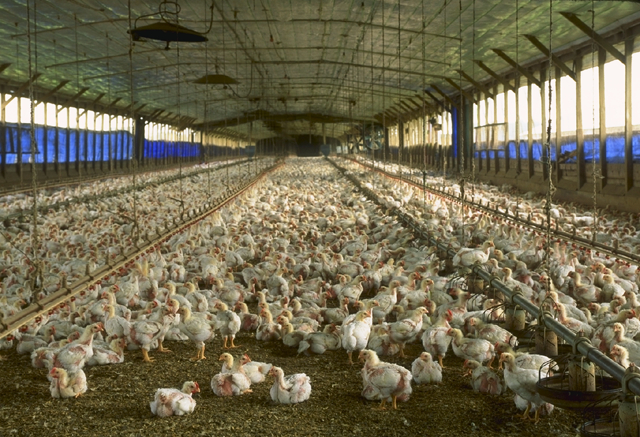Less Moo More Tofu: The Hidden Cost of Factory Farming
Hens only lay eggs for around two years before they are slaughtered to maximize efficiency. (Photo courtesy of Larry Rana)
March 4, 2020
Humans’ eating habits greatly impact the planet and other people.
“If everyone ate half as much meat, we could feed everyone on earth today, plus 2 billion more people,” said Vidisha Rai, San Jose Director of the Factory Farming Awareness Coalition (FFAC), speaking to the DVC Inquirer newsroom last month.
More than 9 billion animals are raised and killed in the US for meat, eggs, and milk annually. Out of those, 99% are raised on factory farms, known as Concentrated Animal Feeding Operations, according to the FFAC.
The market for animal products has resulted in a catastrophic amount of emissions. “Animal agriculture causes more greenhouse gas emissions than the entire transportation sector combined,” said Rai.
Although “free range” or “cage free” might bring images of rolling hills and quaint farms to mind, the truth is that free range merely means animals have access to a door or window, according to Rai. Cage free means that the chickens have room to walk around, but their beaks are routinely chopped off to prevent them from pecking each other to death.
At the talk, Rai explained that hens only lay eggs for around two years before they are slaughtered to maximize efficiency. Meanwhile, cows are forcibly inseminated using metal syringes, and after birthing only produce milk for an average of six years before slaughter.
Not only is cow’s milk expensive to produce, it is environmentally irresponsible. Rai said, “The production of one gallon of milk equates to 27 showers worth of water usage.”
The human cost of factory farming is alarming for workers as well as anyone living in the vicinity. Those working on factory farms tend to be undocumented or lower income, and because of the high volume of animal waste in surrounding areas, the property value of homes tends to be very low, making it impossible for residents to relocate.
People living near factory farms are also nearly three times more likely to be carriers of MRSA, a staph infection that kills 20,000 people in the US every year. According to the FFAC, 45 percent of workers on pig farms tested positive for MRSA.
More than 80 percent of antibiotics manufactured in the US go to livestock, Rai said, which has led to the contamination of meat by antibiotic resistant bacteria.
The health impacts of consistently eating large amounts of animal products can shorten your life expectancy. According to the FFAC, people with diets rich in animal products are four times more likely to die of cancer.
Rai said that a plant-based diet is one of the most effective strategies to avoid or reverse diabetes. Foods such as chard, spinach, oatmeal, and tofu are viable and accessible options. Even reducing the consumption of meat by small amounts can be immensely healthy - individually, as well as for the planet.
“If everyone in the US ate no meat or cheese for one day a week, it would be like taking 7.6 million cars off the road.”










































































